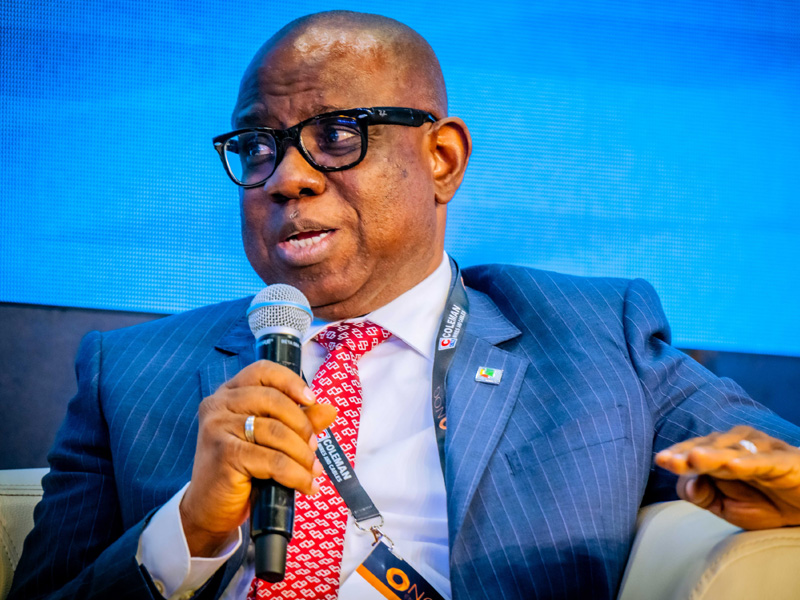Business
NNPC Projects Revenue Losses After PENGASSAN Strike Disrupts Production

The Nigerian National Petroleum Company (NNPC) Limited has issued a warning regarding potential revenue losses following a strike by the Petroleum and Natural Gas Senior Staff Association of Nigeria (PENGASSAN). The industrial action, which was suspended on October 1, 2025, caused significant disruptions to oil and gas production, as well as to liftings and gas sales.
In a letter dated September 29, 2025, addressed to both the Nigerian Midstream and Downstream Petroleum Regulatory Authority (NMDPRA) and the Nigerian Upstream Petroleum Regulatory Commission (NUPRC), NNPC Group Chief Executive Officer Bayo Ojulari reported a 16 percent loss in oil production as a direct result of the strike. “Significant revenue losses are projected at current deferment levels, driven by missed liftings and gas sales,” he stated, highlighting immediate cash flow pressures.
Ojulari emphasized the importance of ongoing engagement with operating partners and stakeholders to enhance security protocols. He noted that non-union staff have been activated to take over operations where feasible, in response to the industrial action. The strike’s ramifications extend beyond the operations of the Dangote Refinery, presenting systemic risks to energy supply and the broader economy.
Within the first 24 hours of the strike, production deferments were substantial, amounting to approximately 283 kbopd of oil, 1.7 bscfd of gas, and impacting over 1,200 MW of power generation. Ojulari explained that this disruption represents around 16 percent of Nigeria’s national oil output, 30 percent of marketed gas, and 20 percent of electricity generation.
Impact on Operations and Future Projections
The strike also halted five critical maintenance activities, with potential knock-on effects leading to further production deferments. These included maintenance on the USAN TAM, AKPO GT-3 pigging, H2 Well Tests, annual compressor maintenance, and SEPNU EAP IGE. According to Ojulari, critical projects that were expected to restore approximately 100,000 barrels per day of crude oil and 1.34 billion standard cubic feet of monetised gas across various assets have been postponed.
Although a limited number of non-unionized staff managed to maintain some crude export operations, overall activities were severely constrained. Ojulari warned that ongoing and planned lifting operations across terminals could face additional financial challenges in the coming months, including heightened risks of demurrage claims from international buyers. He cited the Brass terminal as an example, where loading of an NNPC cargo was stalled due to incomplete documentation during the strike, already incurring demurrage costs.
“The financial impact is escalating quickly, with significant revenue losses projected under current deferment levels,” Ojulari concluded. The strike was initiated in response to the dismissal of Nigerian workers by the Dangote Group, which ultimately agreed to redeploy the dismissed employees.
As the industry grapples with these challenges, the full extent of the strike’s impact on Nigeria’s oil and gas sector remains to be seen, highlighting the delicate balance between labor relations and operational stability in the energy sector.
-

 Health3 months ago
Health3 months agoNeurologist Warns Excessive Use of Supplements Can Harm Brain
-

 Health3 months ago
Health3 months agoFiona Phillips’ Husband Shares Heartfelt Update on Her Alzheimer’s Journey
-

 Science1 month ago
Science1 month agoBrian Cox Addresses Claims of Alien Probe in 3I/ATLAS Discovery
-

 Science1 month ago
Science1 month agoNASA Investigates Unusual Comet 3I/ATLAS; New Findings Emerge
-

 Science4 weeks ago
Science4 weeks agoScientists Examine 3I/ATLAS: Alien Artifact or Cosmic Oddity?
-

 Entertainment4 months ago
Entertainment4 months agoKerry Katona Discusses Future Baby Plans and Brian McFadden’s Wedding
-

 Science4 weeks ago
Science4 weeks agoNASA Investigates Speedy Object 3I/ATLAS, Sparking Speculation
-

 Entertainment4 months ago
Entertainment4 months agoEmmerdale Faces Tension as Dylan and April’s Lives Hang in the Balance
-

 World3 months ago
World3 months agoCole Palmer’s Cryptic Message to Kobbie Mainoo Following Loan Talks
-

 Science4 weeks ago
Science4 weeks agoNASA Scientists Explore Origins of 3I/ATLAS, a Fast-Moving Visitor
-

 Entertainment4 months ago
Entertainment4 months agoLove Island Star Toni Laite’s Mother Expresses Disappointment Over Coupling Decision
-

 Entertainment3 months ago
Entertainment3 months agoMajor Cast Changes at Coronation Street: Exits and Returns in 2025









